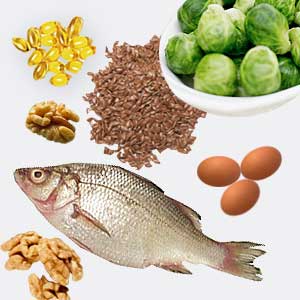I came across this article the other day – a rant from a mom who is fed up about having to accommodate the various food allergies of her child's classmates. The piece was obviously designed to be inflammatory so I hesitate to even get involved here. But this line just fires me up: "Some schools have even gone the route of banning all classroom birthdays and celebrations, which is ridiculous. The fear of one shouldn't outweigh the rest. We don't always get to eat things we want to eat."
Since when did birthdays become only about the food we eat? How sad it is that our celebrations revolve around food in this way and that as a culture, we have lost the creativity to design birthday celebrations (in schools and otherwise) around the birthday girl or boy and not the sweets. And at what point did the in-class birthday celebration become the end-all, be-all? The author says that "it makes sense to ban certain items when children are too young to ask and avoid foods that they might have sensitivities toward. But once we cross a threshold, personal responsibility and parental education need to come into play." When, I wonder, do people cross that supposed threshold? Is it the same age for everyone? Does it happen when children are ten? When they're thirteen? When they're seven? I highly doubt that parents of children with severe allergies would ever agree on any kind of threshold. I am a grown woman with children of my own and my parents still worry about my allergies.
It's this kind of disrespect for allergies that keep us down as a society. I have life threatening allergies to nuts and fish and I am tired of this debate. I don't want to force my allergies on everyone and I don't expect to live in a completely nut-free and fish-free world. But I expect to be treated with the same dignity as my non-allergic friends. Having allergies is not a choice I made.
my life-savers
Two nights ago, while on vacation with my family, I took a bite of a piece of grilled chicken and within seconds, I developed hives in my mouth and had to take Benadryl which put me out of commission for the entire night. There were no nuts or fish hidden in my dish but something was wrong. Somehow in the kitchen, the same utensils that were used on salmon must have been used on my chicken. This kind of lack of hygiene is absolutely abhorrent to me; not only because I have allergies, but also because I have respect for proper food preparation. Cross contamination is a big issue in the allergy community. And that's why even when we talk about having special items available for the allergic children in the classroom, it's never that simple. One of the commenters on that article, a self-proclaimed teacher, wrote "I think it's bullshit. Peanut allergy? Reasonable, don't bring peanuts or peanut butter in. Anything else? Your child can sit on the hallway with a piece of licorice while everyone else eats their homemade cupcakes. Other children shouldn't have to be punished because your child happens to be allergic." Putting aside the fact that there are many allergens that cause reactions just as serious as peanuts, it's completely terrifying that a person who teaches children as his profession is so obtuse about allergy reality. Isolate the allergic child in the hallway in a shaming way? Inhumane. How sad that as a society we are so poorly educated about these issues and that we equate being punished with not eating cupcakes. Frankly I think it's shameful that teachers and parents would ignore this enormous opportunity to teach compassion and understanding about the (very serious) needs of others. My second grader has classmates with anaphylactic allergies. Her teacher espouses tolerance, acceptance and shared responsibility. Schools have an obligation to make the safety of children a top priority. I look forward to the day when we look back on these issues and wonder how we ever could have been so uncaring.
Special thanks to Sally at Real Mom Nutrition for compiling these terrific food-free ideas for birthday celebrations.
For an amazing cupcake recipe to celebrate outside of school, here's our family favorite (contains gluten and dairy).


